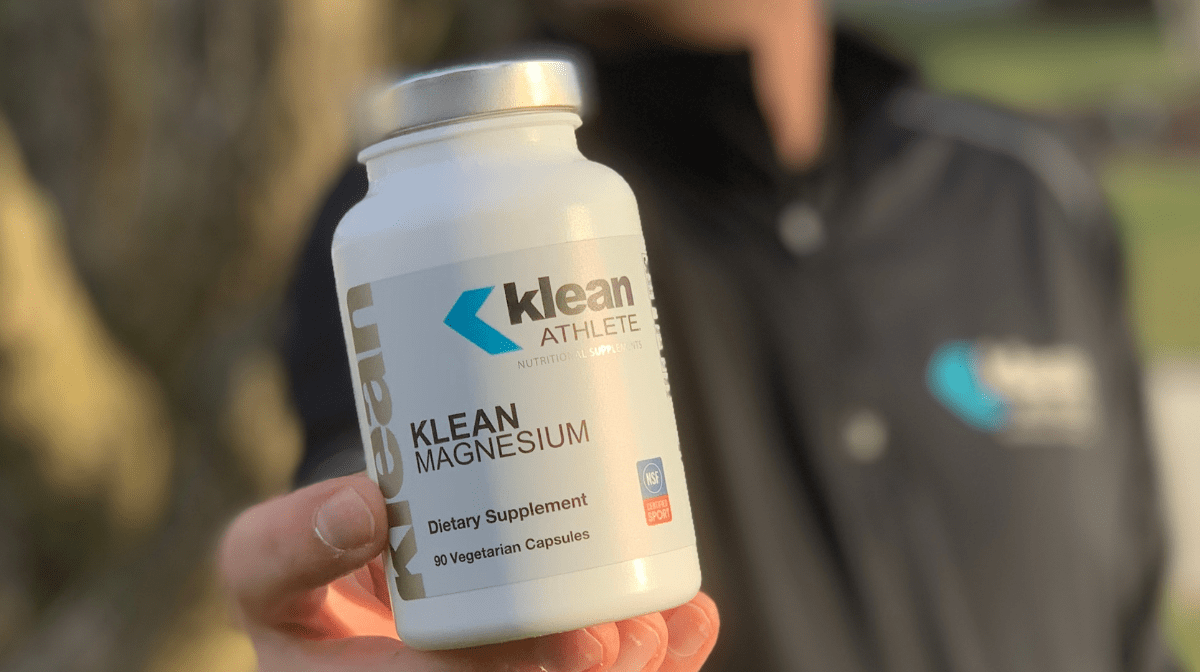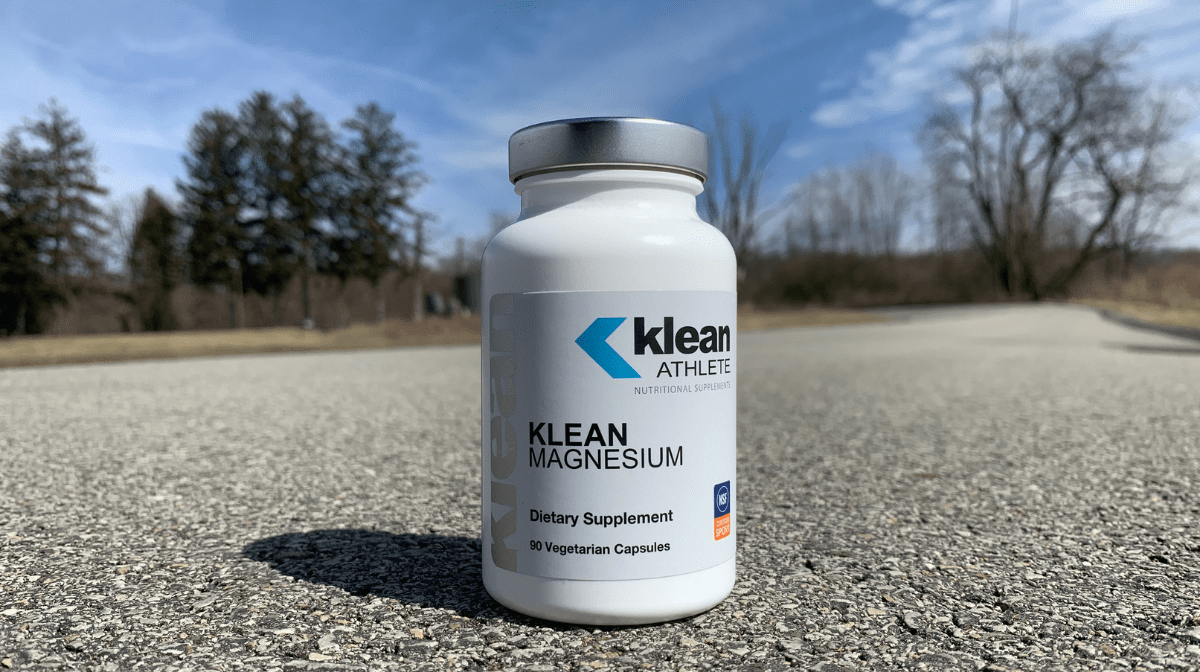Magnesium is an essential mineral that our body needs to support various physiological processes, such as muscle function and energy production. This is why, as an athlete, it’s important to ensure you’re getting what you need to help maintain optimal performance.
In this article, we’ll explore what magnesium is and what its benefits are.
What is Magnesium?
Magnesium is a mineral found in our cells, muscles, and bones and it’s one of the essential electrolytes needed to maintain homeostasis. Your body can’t make it on its own, so it’s important to get what you need from your daily diet or supplements.
What is Magnesium Good for?
When it comes to supporting performance, magnesium emerges as a key player in the game, as it is responsible for over 300 enzyme reactions, as well as:
1. Energy Production
Magnesium directly contributes to the body’s energy production process as it binds to adenosine triphosphate (ATP), which is the main source of energy found in the cells, to form a Mg-ATP complex.
2. Magnesium for Muscle Relaxation
Calcium and magnesium are two important minerals that regulate muscle contraction and relaxation in the body.
Calcium ions bind to specific proteins in muscles, such as the troponin complex, triggering muscle contraction. However, magnesium ions compete with the calcium ones to bind with the protein molecules in order to facilitate muscle relaxation. Not only is this important for muscle function during exercise, but it is also what helps to regulate your heartbeat.
If your magnesium levels need support and unable to counteract the calcium ions, the muscles may contract too much, leading to painful cramps during exercise – something that every athlete is keen to avoid.
Magnesium may also contribute towards supporting muscle recovery after vigorous exercise.
3. Magnesium for Stress
Stress is an inevitable part of an athlete’s everyday life. You’re probably no stranger to mental stress that originates from your pre-competition anxiety, but some studies have found that certain levels may be beneficial. However, once it becomes unmanageable, it may impact the following:
• Immune function
• Energy levels
• Hormones
• Exercise recovery
• Diet
• Sleep
4. Magnesium for Sleep
Magnesium is often purported to support relaxation. Although there is limited evidence for this, it is a field that is frequently researched. One hypothesis is that magnesium may help manage stress, which may make it easier to switch off, relax, and fall asleep.
5. Magnesium for Bone Strength
Any keen sportsperson will be eager to avoid any injuries that may put them out of action for a while – especially when it comes to fractures.
Although vitamin D and calcium may be the first nutrients that spring to mind when it comes to bone health, magnesium intake could also be important.
This is because around 60% of magnesium is found in the bones, and it is vital for the maintenance of bone density. This is partly due to the fact that it contributes to vitamin D utilization, which is required to help the bones absorb calcium and keep them strong.
Studies have found that 77% of fractures in athletes were in the lower limbs, which could have a detrimental effect, keeping them on the sidelines for weeks. Prioritizing magnesium-rich foods or supplements could be beneficial to reducing the potential risk of fractures associated with low status.

How Much Magnesium Should an Athlete Take Daily?
When it comes to magnesium, it’s thought that those who are more physically active may require up to 10-20% more than the general population due to losses through sweat and urine. Additionally, as the muscles are required to contract more during exercise, it may be depleted more quickly than in those who are more sedentary.
In fact, recent studies have found that less than 260 milligrams per day for male athletes and 220 milligrams a day for females may result in a deficiency. The recommended dietary allowance (RDA) for the general population is:
• 400-420 mg per day for men
• 310-320 mg per day for women
• 350-360 mg for pregnant women
Although those who are more active may require more magnesium, it’s important to note that the intake of magnesium through supplements should not exceed 350 milligrams, as it may cause adverse effects, such as diarrhea. It is advisable to incorporate them into a diet rich in magnesium-rich foods to ensure you’re meeting your requirements.
Should Athletes Take Magnesium Supplements Before or After a Workout?
If you’re wondering whether you should take a magnesium supplement before or after your workout, it will depend on a few factors, such as the sport you’re participating in and your reasons for taking it.
For those looking to see if magnesium could have a beneficial impact on their sleep, it may be worth taking a supplement in the evening. However, the most important thing is to avoid a magnesium deficiency in the first place, so it’s advisable to take it at a time that suits you, regardless of whether that’s before or after a workout. This will help you to remain consistent and keep your magnesium levels where they should be.
Which Foods are High in Magnesium?
As your body can’t make it on its own, incorporating magnesium-rich foods into your diet is a great way to ensure you’re meeting your recommended daily intake. Some of the best sources of magnesium include:
- Nuts and seeds
- Whole grains
- Dark leafy greens, such as spinach
- Beef
- Dairy products, such as milk and yogurt
- Dark chocolate
- Avocado
- Legumes
Incorporating some of these foods into your daily diet may help you to stay on top of your magnesium intake. Additionally, a supplement, like our Klean Magnesium, is a quick and easy way to complement your diet and ensure you get what you need.
From contributing towards stronger bones to helping with muscle contractions, magnesium has a huge number of purported benefits. But why stop there? Explore our huge range of supplements that could help to keep you at the top of your game.

